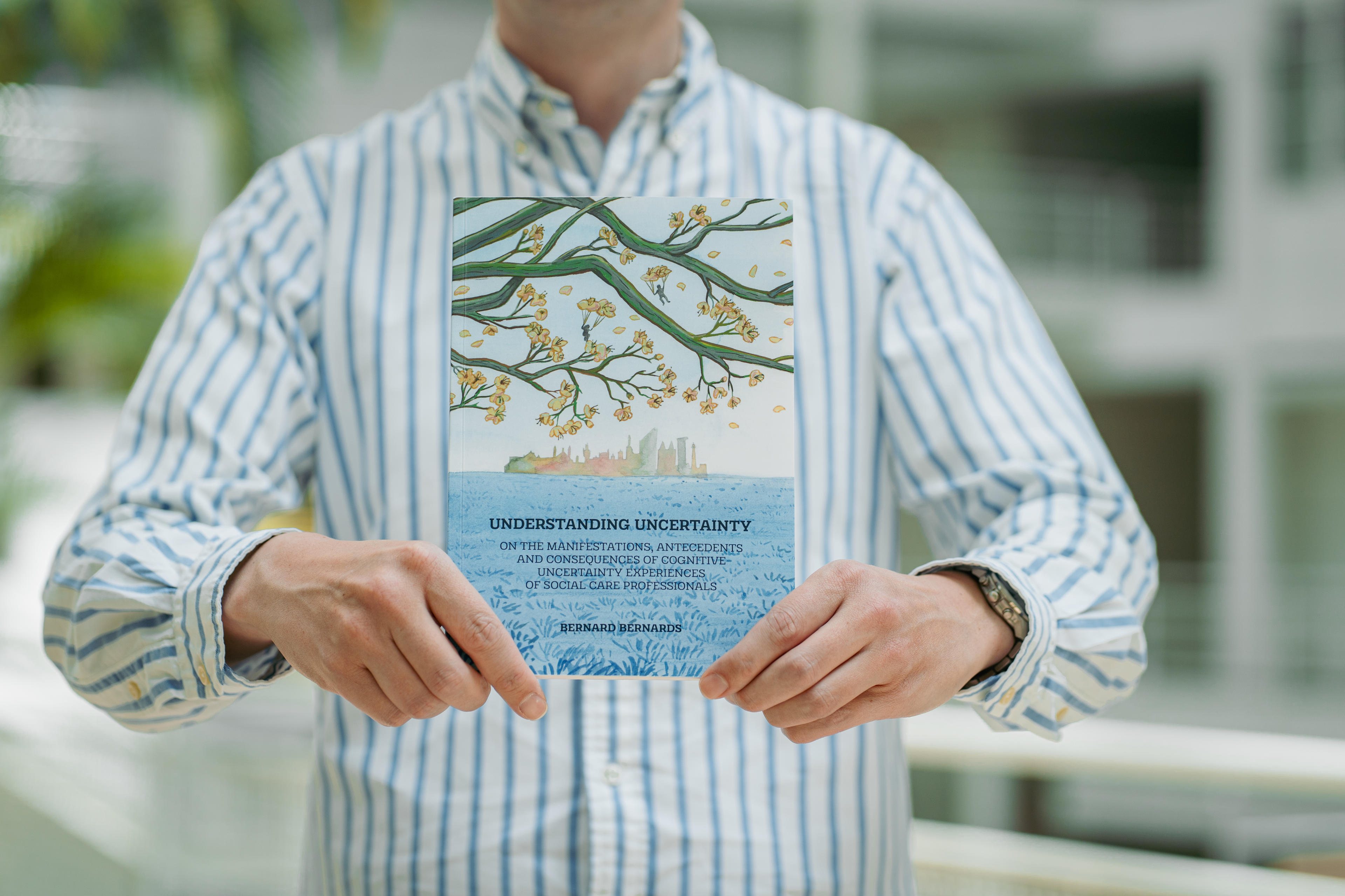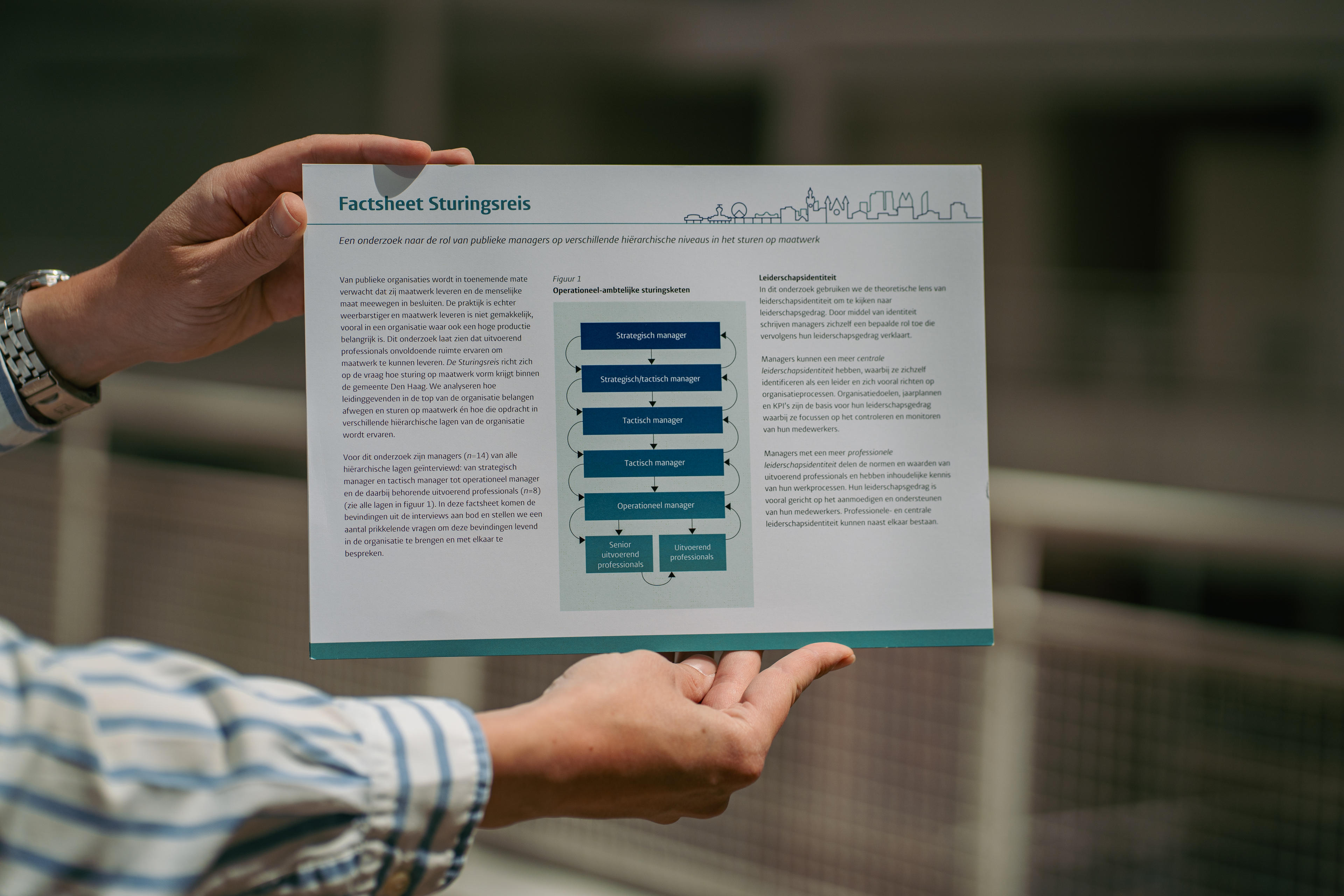Bernard Bernards & Marit Schubad
From passports to policy: take a moment to look up in City Hall

Have you come to City Hall to renew your passport, request a wheelchair for a family member or register the birth of your child? Take a moment to look beyond the service desk –and look up. On every floor of this building, civil servants are hard at work with one shared goal: to serve the people of The Hague. How best they can do so is what Bernard Bernards and Marit Schubad are investigating.

On all floors of the ‘Ice Palace’ – as The Hague City Hall is known – hundreds of staff in diverse roles are working to provide the best possible service to the city’s residents. But the organisation is large and the requests are wide-ranging. ‘That’s only natural because The Hague is a diverse, multicultural city with stark contrasts between rich and poor. That calls for a customised approach, one that ensures everyone feels seen and heard. That way, they offer the right solution for each unique situation and person. ‘We are researching how managers at different levels within the municipality approach this. How does the organisation ensure this works in practice?’ say Marit and Bernard.
Like the telephone game
The researchers compare the process within the organisation with the familiar game of telephone, where a message is whispered from one person to the next around a circle – only to emerge completely transformed at the end. ‘That’s how if often works in the municipality. A message from the top must travel through the multiple layers of management before it reaches the shop floor – and the same is true in reverse. We are researching how the Municipality of The Hague can better organise and improve that process.’
Customisation is the magic word, and the foundation of the municipality’s service. Everyone should receive the help they need the first time they come to the service desk. ‘But reality is more complex. In such a large organisation, you are dealing with countless rules and bureaucratic procedures. Can the front-line staff go to their managers and ask whether things can be done differently – and do they dare to?’ The people at the desk know exactly what’s happening on the ground, but the rules are made on the floors above.’
The key to change lies with managers
Based on their research, Marit and Bernard offer several recommendations. ‘Give staff the space to share their knowledge with managers. Everyone should be able to make mistakes and give and receive feedback. We have some advice for both sides: managers should be open and actively ask questions, while staff should take initiative and feel confident in offering customised solutions, so that citizens receive the right support first time. But the real key to change, we discovered, lies with managers. How they lead has a major impact on how much freedom staff feel they have to offer tailored solutions.’
Every two weeks, Marit joins a meeting with civil servants and their managers, where she hears real-life examples from the workplace. ‘What I see and hear each time motivates me to continue this research. Everyone is doing their best to support the residents of The Hague. But there’s still a long way to go. Vulnerable people deserve the help they need – even if that doesn’t quite fit within the rules.’
The Hague is leading the way
The researchers are full of praise for what the Municipality of The Hague is doing. ‘Compared with other municipalities, The Hague is leading the way when it comes to customisation: by experimenting, taking action and conducting research. What we’re doing here is real research with an impact driven by societal demand. It’s research with and for society, and not from an ivory tower.’
Text: Margriet van der Zee
Photography: Wilke Geurds



